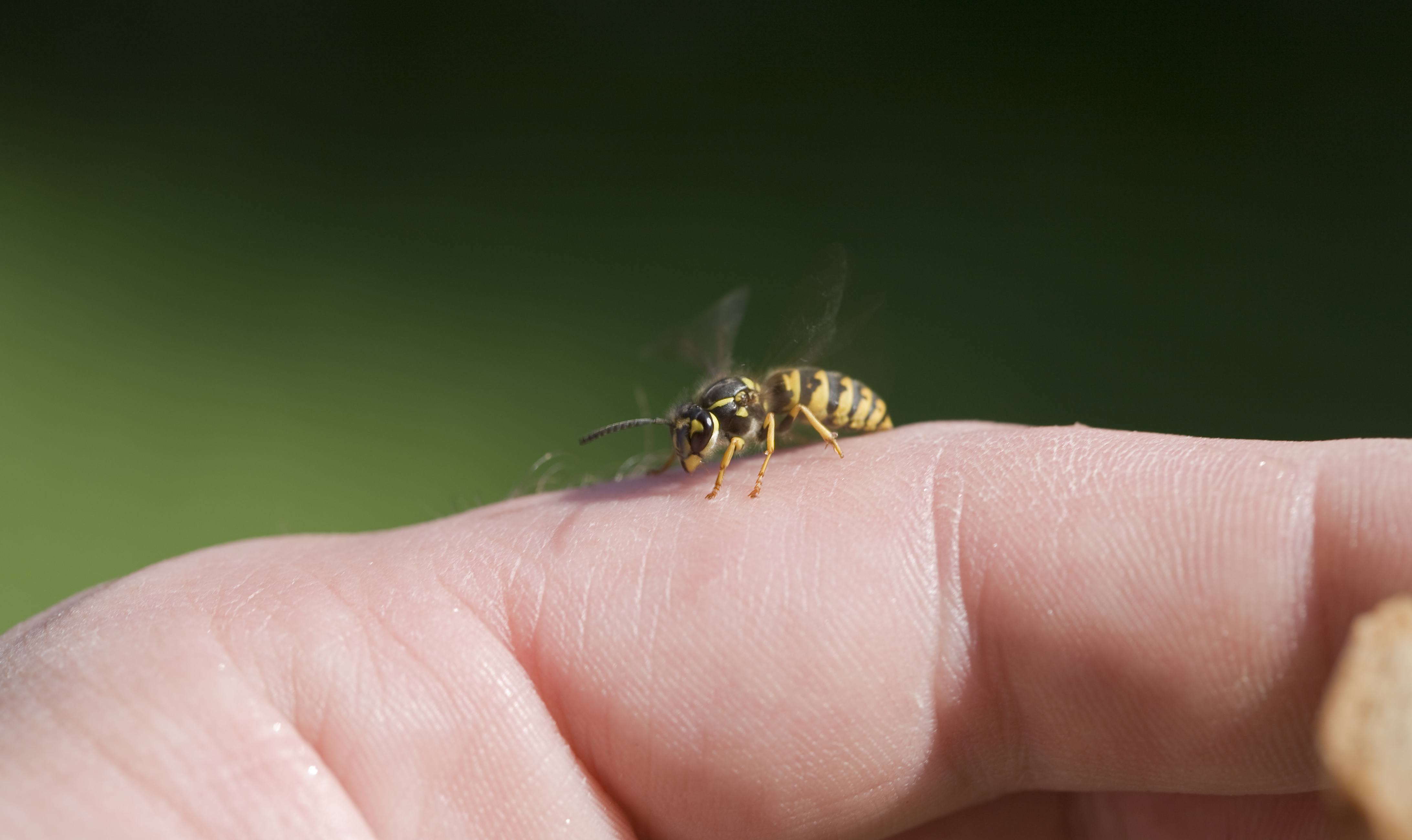Insect Safety Tips
Stings from insects like bees, wasps, hornets and yellowjackets can cause serious and potentially life-threatening reactions. More than two million Americans are allergic to these types of stings, but even those without a history of allergic reactions can experience a severe response. Employers and employees should take caution where stinging insects are known to make their homes – such as in trees and under roof eves – in addition to following these sting prevention and response tactics.
What to Avoid
- Avoid using perfumed soaps, shampoos and deodorants.
- Refrain from wearing cologne or perfume.
- Stay away from flowering plants (if possible).
- Do not swat at an insect.
- Avoid sudden movements if a bee or wasp lands on you.
What to Wear
General:
- Wear clean, light-colored and smooth-finished clothing.
- Opt for clothing that covers as much of the body as possible.
- Wear close-toed shoes to protect your feet.
- Tie back long hair to prevent stinging insects from becoming entangled.
When stinging insects are known to be present:
- Wear a hat with netting to protect your head, neck and shoulders.
- Tape your pants to your boots or socks and your shirt sleeves to your gloves.
- Consider an extra layer of clothing; some insect stings can penetrate a single layer of clothing.
Food and Drinks
- Pour canned or bottled beverages into wide cups to be able to see if an insect has entered your drink.
- If drinking from a can, keep your thumb over the opening until you have finished the drink. Bees and wasps will frequently crawl into cans of soda.
- Quickly dispose of trash and put away food you’re not eating.
- Place trash cans away from any food-dispensing windows or eating areas if either are present.
- Keep food tightly covered and discard scraps immediately.
- Frequently clean any drink-dispensing machines.
- Screen in any food stations.
- Ensure work spaces are kept clean and free of discarded food. Stinging insects thrive where food waste is discarded.
- Clean up fallen fruit from any nearby fruit trees.
Waste Disposal
- Empty and wash garbage cans regularly.
- Fit garbage cans with tight lids.
- In population-dense areas like amusement parks, garbage cans or dumpsters should be emptied every morning.
- When the garbage contains items like ice cream or juice containers, it should be emptied multiple times per day.
Before Beginning Work
- Look for signs of stinging insect activity or nesting.
- If multiple insects are flying around, inspect to find where they may be entering or exiting from. You may be able to locate a food source or nest.
- Be aware that the use of power tools like lawnmowers or hedge trimmers may provoke stinging insects.
Working Near Stinging Insects
- If a single insect is present, remain calm and avoid swatting at it. Most insects will not sting unless they are startled or provoked.
- Ideally, let the insect fly away on its own. If necessary, slowly walk away or gently blow the insect away.
- If a stinging insect gets inside your vehicle, slowly stop the car and leave all windows open until the insect exits the vehicle.
- Workers with previously known histories of allergic reactions to insect bites or stings should carry or have easy access to EpiPens. Additionally, these workers should wear a form of medical identification while working that states their allergy.
Dealing with Multiple Stinging Insects
- If multiple insects attempt to sting you at once, or if you have disturbed a nest and hear loud buzzing, immediately run to escape them. Try to protect your face with your hands.
- Be aware that bees can attract even more bees via a chemical that is released when they sting.
- If possible, physically move out of the area. Try to go indoors. If you cannot, then head for a shaded area, as they are better for avoiding insects than open areas.
- When attempting to get away from stinging insects, do not enter a body of water. Stinging insects may continue to sting you when you surface for air.
If You get Stung
- If the stinger is present, remove it using a stiff object like your fingernail or credit card.
- Wash the affected area with soap and water.
- Apply ice and/or anti-itch cream to reduce swelling and itching.
- Take an antihistamine to reduce the effects of the sting.
- If an insect sting victim has a history of allergic reactions or is experiencing difficulty breathing, excessive hives/perspiration and/or the sensation that his or her throat is closing up, call 911 for immediate medical assistance.
- If the sting victim or a trained responder has an EpiPen present, it should be administered immediately.
For more information on this topic, contact your dedicated loss control consultant or visit the Centers for Disease Control and Prevention or Mayo Clinic websites.

Share this resource:
URL coppied to clipboard.
Or send it directly to someone via our email form:
